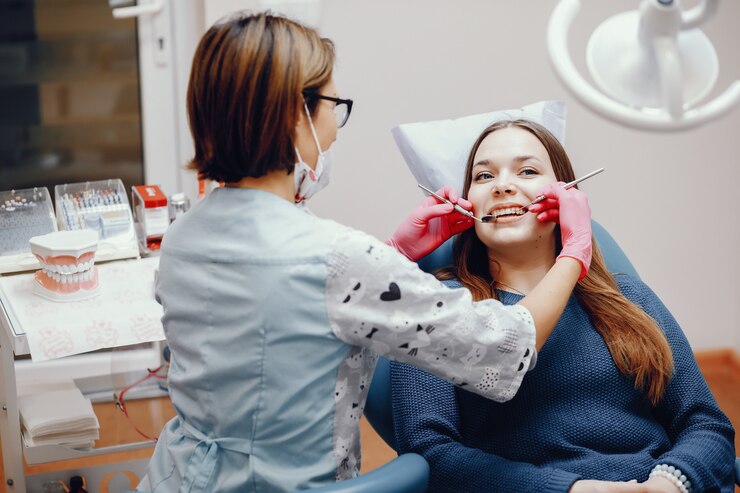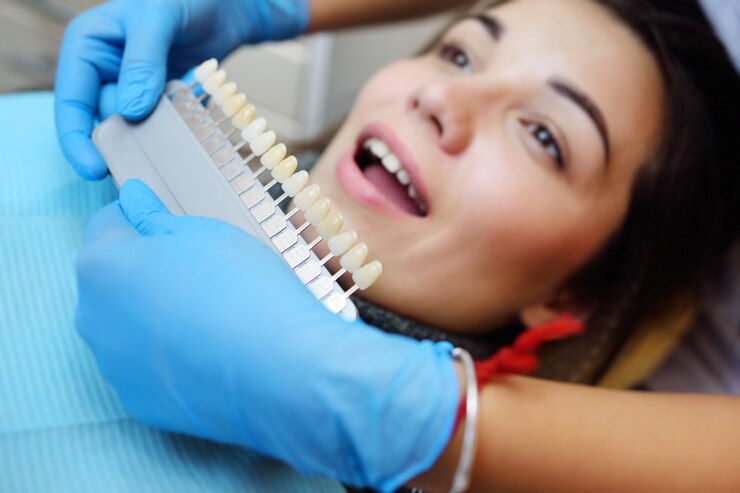Keeping your teeth strong and healthy is easier if you take simple daily steps. These healthy habits not only protect your smile but also improve your overall health.
Brushing the Right Way
Brushing your teeth twice a day, morning and night, is essential for good oral health. Use a soft-bristled toothbrush and fluoride toothpaste. Brushing for two minutes at a time effectively cleans all surfaces. Hold the brush at a 45-degree angle to the gum line and use gentle circular motions to remove plaque without damaging enamel or gums.
Brush your teeth before breakfast, not after. Acidic foods can soften enamel; brushing right away may cause more harm. If you brush after a meal, wait about 30 minutes.
Flossing and Cleaning Between Teeth
Flossing daily removes plaque and food particles between teeth—areas your brush can’t reach. Up to 80% of plaque can be cleared this way. Whether you use waxed string floss, floss picks, interdental brushes, or a water flosser, consistency is key.
Using interdental brushes can be more effective than flossing in some cases, especially for people with braces or tight teeth spacing.
Mouthwash, Diet, and Lifestyle Choices
An antimicrobial or fluoride mouthwash can further reduce harmful bacteria and support enamel health. Choose one with essential oils or fluoride; use it after brushing or flossing.
What you eat matters. Foods rich in calcium (like milk, cheese, yogurt) help strengthen enamel. Crunchy fruits and vegetables (apples, carrots, celery) naturally clean teeth by stimulating saliva and scrubbing surfaces. A balanced diet also supports healthy gums and overall mouth health. Avoid frequent sugary or acidic snacks since they feed bacteria and erode enamel.
Chewing sugar‑free gum with xylitol after meals can boost saliva and help neutralize acids, aiding in natural remineralisation.
Professional Care and Avoiding Harmful Habits
Even with excellent home care, regular dental visits, and avoiding damaging behaviors, they play a big role in long‑term oral health.
Regular Check‑ups and Cleanings
Visit your dentist at least twice every year for professional cleanings. Plaque can harden into tartar, which is only cleanable with dental tools. During visits, a dentist can detect early signs of decay or gum inflammation that you might miss at home.
These exams are also a chance to discuss issues like dry mouth, sensitivity, or bad breath—prompt treatment helps avoid more serious problems.
Avoid Habits That Damage Teeth
Some daily routines can quietly harm enamel and gums over time. Dentists warn against chewing hard objects like ice or pen caps, using teeth as tools, or brushing too hard—these can crack enamel or irritate gums.
Brushing too soon after acidic meals or brushing aggressively are both risky. Giving saliva time to neutralize acid and brushing gently protects your enamel.
Grinding your teeth at night (bruxism) can wear away tooth and cause jaw pain. A night guard may help prevent long-term damage.
Systemic Health Connections
Oral health impacts the rest of your body. Poor gum care may increase the risk of heart disease, stroke, arthritis, diabetes, and even dementia.
Gum disease has been linked to headaches and facial pain due to inflammation spreading to nearby nerves. Cleaning teeth well and maintaining healthy gums helps reduce these risks.
Tips to Maintain Healthy Teeth
Here’s a quick guide to your daily and longer‑term routine:
- Brush gently twice a day with fluoride toothpaste—two full minutes each time.
- Floss at least once daily using your preferred method.
- Use mouthwash with fluoride or essential oils if needed.
- Eat a tooth‑friendly diet: calcium, crunchy vegetables, and low sugar.
- Chew sugar‑free xylitol gum after meals.
- Avoid harmful habits like chewing ice or brushing too hard.
- Don’t brush immediately after acidic meals; wait 30 minutes.
- See a dentist every six months for cleaning and early problem detection.
- Address issues like teeth grinding or dry mouth with your dentist.
By following these steps, you can maintain healthy teeth for life. Good brushing and flossing habits, balanced nutrition, careful daily choices, and regular dental care create a foundation that keeps your teeth strong, gums healthy, and your smile bright. If you ever notice pain, sensitivity, or persistent bleeding, reach out to your dentist without delay. A few mindful changes can make a big difference in preserving your oral health—starting today.


